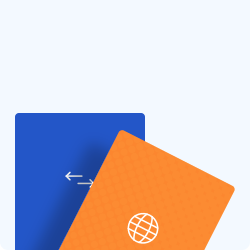Our experts analyse the remittance market, helping you enjoy fast, cheap and secure transfers. Read our comprehensive reviews and send money with confidence.
Compare international money transfers today
Find the best money transfer provider for your needs. Compare features, get the best exchange rate possible, and avoid hidden fees.
Let us do the hard work for you. Start saving money with MoneyTransfers.com.
We test, review, and compare money transfer companies.
Why we’re trusted by millions worldwide

The best rates

Super fast service

Fully transparent
Get your money to its destination
Read our country guides and find the best ways to send money between popular locations.
About MoneyTransfers.com
Founded in 2019, MoneyTransfers.com is designed to transform the way consumers discover the best deals when sending money across the world.
We believe transferring money between countries should be a painless experience for everyone involved. We help our users navigate their way across the sea of global remittance providers by offering detailed insight and guidance on all things money transfers.
There are so many different companies to consider, each with their own unique selling points. Our aim is to remove the difficulty in finding and using suitable money transfer providers by guiding you through every single step to ensure you make the best decision for your specific needs.
As Seen On
%201.svg)
Get started with money transfers
Read our guides on international money transfers.
FAQs
Read below for answers to the most commonly asked questions.







.svg)















